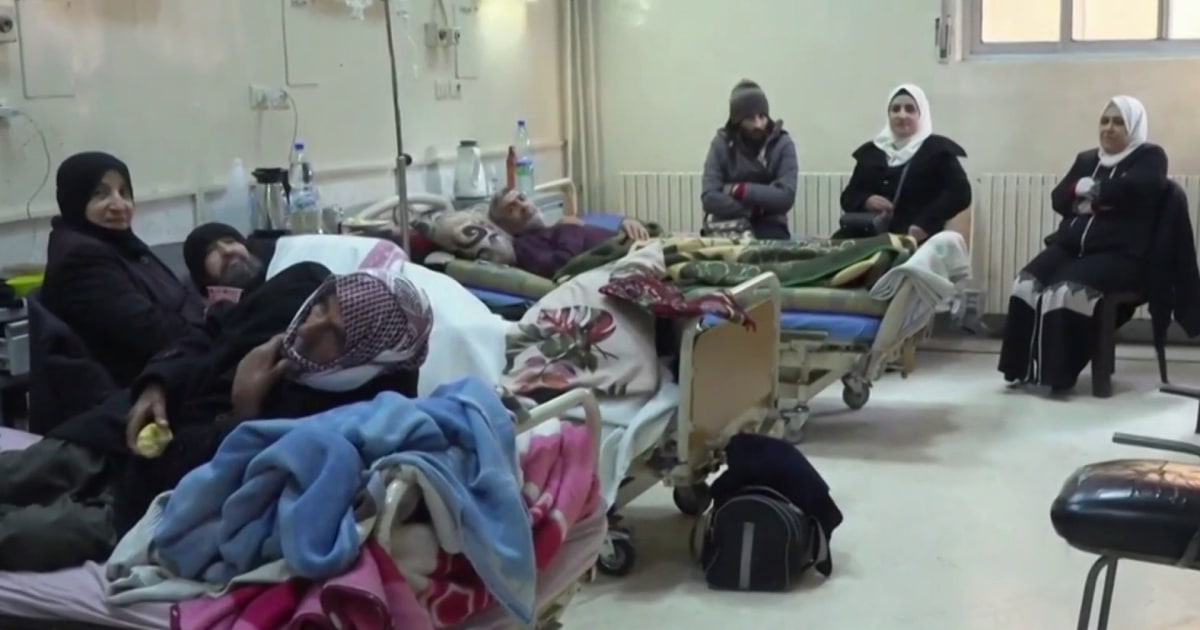Surviving the Siege: How Syrian Hospitals Navigate Acute Supply Shortages
The ongoing conflict in Syria has created one of the most challenging environments for healthcare in the world. Hospitals, often under siege, struggle to provide essential care due to acute supply shortages. Despite these daunting challenges, healthcare workers display remarkable resilience, employing innovative strategies to deliver care under dire circumstances. This article delves into the multifaceted issues that Syrian hospitals face and highlights the tenacity of those dedicated to saving lives amidst the chaos.
The Landscape of Healthcare in Syria
Before the conflict began in 2011, Syria had a relatively robust healthcare system, characterized by a network of public and private hospitals and clinics. However, as the war escalated, the healthcare infrastructure began to crumble. Bombings and military operations targeted hospitals, leading to a drastic reduction in functioning medical facilities. According to the World Health Organization (WHO), over half of Syria’s hospitals are either non-functional or partially operational, creating a critical need for medical supplies and personnel.
Acute Supply Shortages: The Crisis Within a Crisis
One of the most pressing issues facing Syrian hospitals is the acute shortage of medical supplies. Essential items such as surgical instruments, anesthesia, antibiotics, and basic medical equipment are in critically short supply. The United Nations Office for the Coordination of Humanitarian Affairs (OCHA) reports that humanitarian access remains severely restricted, making it increasingly difficult for aid organizations to deliver necessary supplies to these beleaguered institutions.
These shortages lead to devastating consequences for patients. Without adequate supplies, healthcare providers are forced to make impossible choices, prioritizing who receives care and what treatments can be administered. This reality is not just a logistical issue; it poses ethical dilemmas for medical personnel who are trained to save lives but find themselves unable to do so due to lack of resources.
Innovative Solutions Amidst Challenges
Despite these overwhelming challenges, Syrian hospitals have shown incredible ingenuity in coping with supply shortages. Medical staff often resort to creative solutions to maintain a semblance of normalcy in patient care. Some strategies include:
- Reusing Medical Supplies: In many cases, healthcare workers are forced to sterilize and reuse single-use items, such as surgical gloves and masks, to stretch their limited resources.
- Local Manufacturing: Some hospitals have begun to manufacture basic supplies locally. Medical staff may use 3D printing technology to create essential tools or collaborate with engineers to produce necessary equipment.
- Training Community Health Workers: Hospitals are increasingly training local volunteers and community health workers to provide basic care and first aid, thus alleviating some of the pressure on medical personnel.
The Role of International Aid
While local efforts are commendable, international aid plays a crucial role in supporting Syrian hospitals. Numerous organizations are working tirelessly to supply medical necessities and humanitarian assistance. The International Committee of the Red Cross, Médecins Sans Frontières (Doctors Without Borders), and other NGOs have been instrumental in delivering vital resources to underserved areas.
However, international aid is often hampered by logistical challenges. Blockades, insecurity, and bureaucratic obstacles can delay or prevent the delivery of crucial supplies. This reality underscores the need for sustained advocacy and support from the global community to ensure that aid reaches those most in need.
Healthcare Workers: The Unsung Heroes
At the heart of the struggle to maintain healthcare in Syria are the healthcare workers themselves. Doctors, nurses, and support staff are putting their lives on the line daily to provide care under extreme conditions. Many have faced personal tragedies, losing family members or colleagues to the violence, yet they remain dedicated to their patients.
These professionals often work in makeshift facilities, sometimes with limited training in trauma care, as they adapt to the challenges posed by the conflict. The resilience and courage exhibited by these individuals inspire hope and illustrate the human spirit’s capacity to endure even in the darkest times.
The Mental Health Crisis
The impact of the conflict extends beyond physical injuries; mental health issues are rampant among both healthcare workers and patients. The stress of working in a war-torn environment, coupled with the trauma experienced by patients, has led to increased rates of anxiety, depression, and post-traumatic stress disorder (PTSD).
Some hospitals have started to integrate mental health services into their care protocols, recognizing the importance of addressing psychological well-being alongside physical health. This holistic approach not only benefits patients but also helps healthcare workers cope with the immense pressures they face.
Future Perspectives and Hope
As the conflict continues, the future of healthcare in Syria remains uncertain. However, there are glimmers of hope. Efforts to rebuild and support healthcare infrastructure are being initiated, albeit slowly. International partnerships aim to create sustainable healthcare models that can withstand the ongoing turmoil.
Moreover, the resilience displayed by Syrian healthcare workers is a testament to the human capacity for compassion and innovation. As they navigate acute supply shortages, these individuals exemplify the best of humanity, often at great personal cost. Their experiences underscore the importance of global solidarity and support in times of crisis.
Conclusion: A Call for Global Support
Surviving the siege is a daily battle for Syrian hospitals, but through innovation, determination, and international support, they continue to provide care amidst chaos. The global community must recognize the importance of sustaining healthcare in conflict zones and work collaboratively to ensure that vital supplies reach those in need. Every effort counts, and together, we can help Syrian hospitals navigate these acute supply shortages, preserving life and dignity in one of the world’s most challenging environments.
See more WebMD Network



